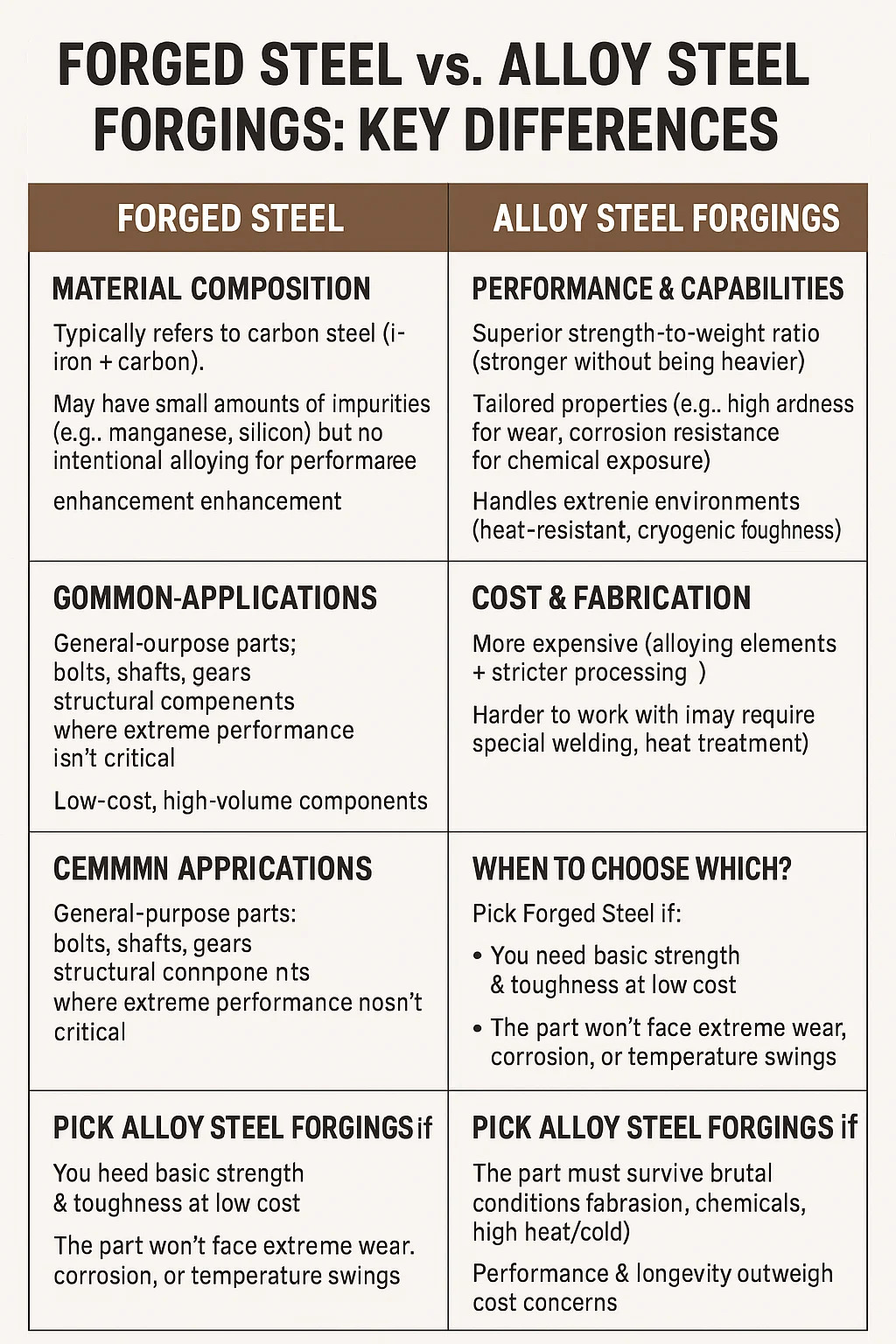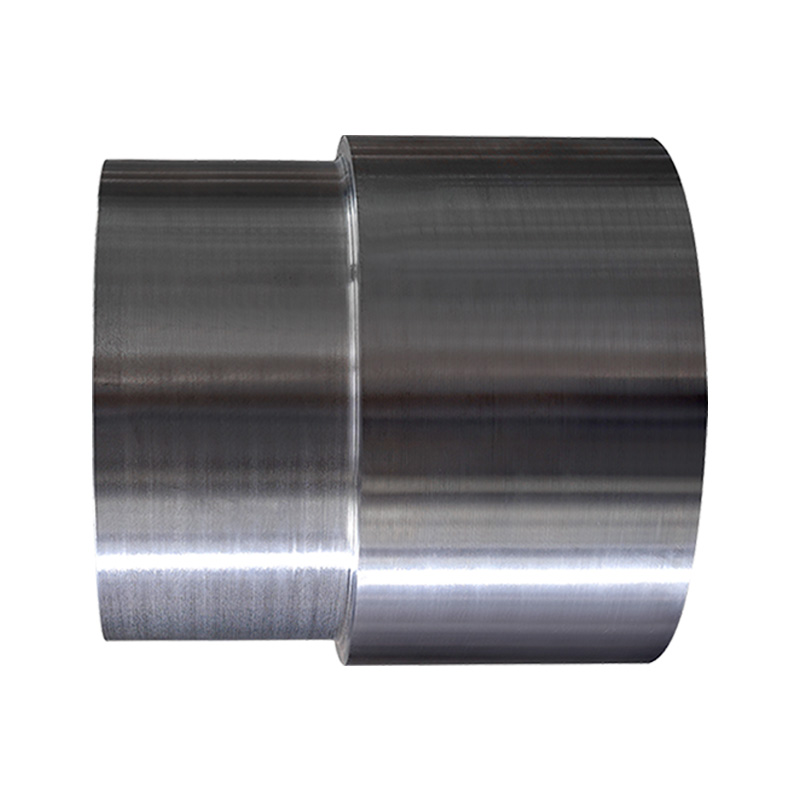Forged Steel vs. Alloy Steel Forgings: Key Differences
1. Material Composition
Forged Steel: Typically refers to carbon steel (iron + carbon). May have small amounts of impurities (e.g., manganese, silicon) but no intentional alloying for performance enhancement.
Alloy Steel Forgings: Deliberately mixed with alloying elements (e.g., chromium, nickel, molybdenum, vanadium) to boost strength, hardness, corrosion resistance, or heat resistance.
2. Performance & Capabilities
Forged Steel:
Good strength & toughness (better than cast steel).
Limited wear/corrosion resistance – wears out faster in harsh conditions.
Weaker at extreme temps (softens at high heat, brittle in deep cold).
Alloy Steel Forgings:
Superior strength-to-weight ratio (stronger without being heavier).
Tailored properties (e.g., high hardness for wear, corrosion resistance for chemical exposure).
Handles extreme environments (heat-resistant, cryogenic toughness, etc.).
3. Common Applications
Forged Steel:
General-purpose parts: bolts, shafts, gears, structural components where extreme performance isn’t critical.
Low-cost, high-volume components.
Alloy Steel Forgings:
Heavy-duty & specialized uses: Crusher hammers, mining drill bits, turbine blades, high-pressure valves, aerospace components.
Where wear, corrosion, or extreme temps would destroy standard forged steel.
4. Cost & Fabrication
Forged Steel:
Cheaper (no expensive alloying elements).
Easier to machine & weld (less risk of cracking or hardening issues).
Alloy Steel Forgings:
More expensive (alloying elements + stricter processing).
Harder to work with (may require special welding, heat treatment).
5. When to Choose Which?
Pick Forged Steel if:
You need basic strength & toughness at low cost.
The part won't face extreme wear, corrosion, or temperature swings.
Pick Alloy Steel Forgings if:
The part must survive brutal conditions (abrasion, chemicals, high heat/cold).
Performance & longevity outweigh cost concerns.


 英语
英语 德语
德语 阿拉伯语
阿拉伯语












